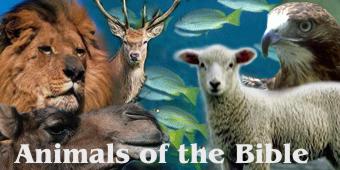What is a…
fatling in the Bible
also known as: fatted
Fatling is an old English word whose first known use is in the early 1500s. It refers to a fattened animal for slaughter (usually a younger animal).
Three Hebrew words are translated as “fatling” in Scripture.
-
meri
Hebrew: מְרִיא —transliteration: meri —meaning: a fatling or fatlings
And so it was, that when the bearers of the ark of the Lord had gone six paces, he sacrificed an ox and a fatling. —2 Sam. 6:13 NASB
And the wolf will dwell with the lamb,
And the leopard will lie down with the young goat,
And the calf and the young lion and the fatling together;
And a little boy will lead them. —Isa. 11:6 NASBYou will eat the flesh of mighty men and drink the blood of the princes of the earth, as though they were rams, lambs, goats and bulls, all of them fatlings of Bashan. —Ezek. 39:18 NASB
Compare Matt. 22:4 KJV, where the word used in the original, sitistos, means literally “corn-fed;” i.e., installed, fat)
-
meach
Hebrew: מֵחַ —transliteration: meach —meaning: a fatling
I will offer unto thee burnt sacrifices of fatlings,
With the incense of rams; … —Psalm 66:15 KJV -
mishneh
Hebrew: מִשְׁנֶה —transliteration: mishneh —meaning: a second or double
Hence, this may refer to “cattle of a second quality,” or lambs of the second birth, i.e., autumnal lambs, and therefore of less value).
But Saul and the people spared Agag, and the best of the sheep, and of the oxen, and of the fatlings, and the lambs, and all that was good, and would not utterly destroy them: but every thing that was vile and refuse, that they destroyed utterly. —1 Sam. 15:9 KJV
The NASB translation is basically identical: “the fatlings” (1 Samuel 15:9 NASB).
However, the English Standard Bible translates this phrase as “of the fattened calves” (1 Samuel 15:9 ESV).
More information
 Answers about sheep in the Bible
Answers about sheep in the Bible- What is the significance of lambs in the Bible?
- Answers about agriculture in the Bible
 Animals of the Bible
Animals of the Bible